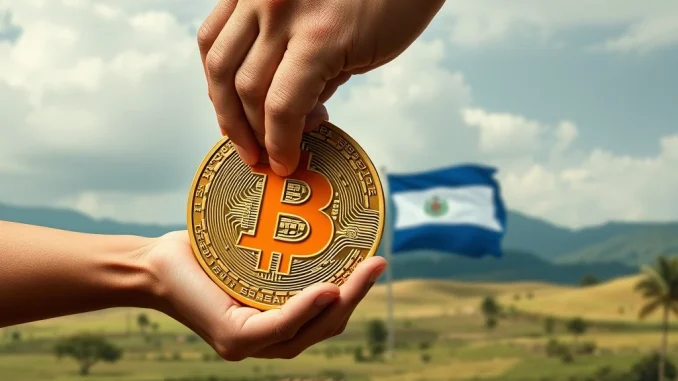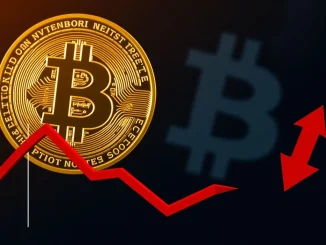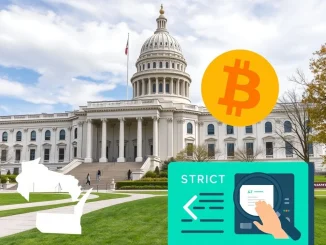
Is El Salvador still buying Bitcoin? This question has been at the forefront of discussions for anyone following the nation’s groundbreaking adoption of the cryptocurrency. Recent reports from the International Monetary Fund (IMF) have unveiled a significant shift in El Salvador’s Bitcoin acquisition strategy, creating a compelling narrative that challenges previous government statements. This development is crucial for understanding the interplay between national sovereignty, economic policy, and the volatile world of digital assets.
El Salvador Bitcoin Policy Under Scrutiny
For years, El Salvador has captivated the global financial community with its bold move to make Bitcoin legal tender in 2021. President Nayib Bukele has often been lauded, and sometimes criticized, for his unwavering commitment to this digital currency, frequently announcing new Bitcoin purchases for the national treasury. However, a recent IMF report casts a shadow of doubt on these claims, stating unequivocally that El Salvador has not purchased any Bitcoin since December 2024. This revelation directly contradicts the Salvadoran government’s public assertions of continuous, even daily, Bitcoin accumulation.
The IMF’s findings are particularly significant because they emerge in the context of a substantial financial agreement. The report indicates that El Salvador’s public Bitcoin holdings have remained unchanged since the country secured a pivotal $1.4 billion loan deal with the IMF. This condition, as stipulated by the agreement, raises critical questions about the autonomy of El Salvador’s economic decisions and the influence of international financial bodies on sovereign cryptocurrency strategies.
The IMF El Salvador Loan Deal: What Changed?
The relationship between the IMF and El Salvador has been a complex one, particularly since the nation embraced Bitcoin. The IMF has consistently expressed concerns about the risks associated with Bitcoin adoption, citing volatility, financial integrity, and consumer protection issues. The recent $1.4 billion loan deal, while providing much-needed financial support to the Central American nation, appears to have come with specific stipulations regarding its Bitcoin policy.
While the exact terms of the agreement are not fully public, the IMF’s report strongly suggests that a key condition for the loan was a halt to further national Bitcoin purchases. This would be consistent with the IMF’s long-standing recommendations for El Salvador to re-evaluate its Bitcoin strategy due to potential fiscal risks. Here’s a breakdown of what such a deal typically entails and why it matters:
- Financial Stability: IMF loans often aim to restore or maintain a country’s macroeconomic stability. Uncontrolled, volatile asset purchases can be seen as a risk to this stability.
- Fiscal Prudence: The IMF generally advocates for prudent fiscal management. Spending public funds on a highly volatile asset like Bitcoin, especially with borrowed money, might be viewed as fiscally irresponsible from their perspective.
- Policy Influence: Securing a large loan from an institution like the IMF often means adhering to certain policy recommendations, which can include fiscal discipline, monetary policy adjustments, and, in this unique case, potentially a moratorium on speculative asset purchases.
- Transparency and Accountability: The IMF often emphasizes transparency in public finances. Halting purchases and maintaining a static public holding allows for clearer accounting and reduces speculative risk for the loan provider.
This situation highlights the delicate balance many developing nations face between pursuing innovative economic policies and adhering to the frameworks set by traditional international financial institutions.
Bitcoin Accumulation: A Closer Look at Public Holdings
One of the most compelling aspects of this report is the confirmation that El Salvador’s public Bitcoin holdings remain unchanged. This detail directly refutes the narrative of continuous Bitcoin accumulation pushed by the Salvadoran government. For a nation that has prided itself on ‘buying the dip’ and steadily growing its crypto reserves, this static figure is a significant revelation.
Prior to this report, President Bukele would frequently use social media to announce the acquisition of additional Bitcoin, often in response to market dips. These announcements were seen by many as a testament to his conviction in Bitcoin’s long-term value and a symbol of national defiance against traditional financial norms. However, if the IMF’s report is accurate, these public declarations may have ceased to reflect actual treasury activity since the loan agreement was struck.
The implications of static Bitcoin holdings are multi-faceted:
- Transparency Concerns: It raises questions about the transparency of government financial reporting and public communication. If official statements don’t align with verified reports from international bodies, public trust can erode.
- Economic Strategy Shift: It suggests a potential, albeit unacknowledged, pivot in El Salvador’s economic strategy, prioritizing traditional financial stability (via the IMF loan) over an aggressive Bitcoin investment approach.
- Market Perception: For the broader cryptocurrency market, it signifies that even the most ardent national adopters might be susceptible to external financial pressures, potentially tempering enthusiasm for widespread sovereign Bitcoin adoption in the short term.
President Bukele’s Stance and the Future of El Salvador’s Crypto Strategy
Despite the IMF’s clear findings, President Bukele has continued to insist that El Salvador is accumulating Bitcoin. This creates a fascinating public relations dilemma and raises questions about the government’s long-term strategy. Why would a nation continue to assert a policy that appears to be contradicted by an international financial report, especially one tied to a substantial loan?
Several theories could explain this divergence:
- Maintaining Public Image: Bukele’s political brand is heavily tied to his innovative and often rebellious stance on Bitcoin. Admitting a halt in purchases could be perceived as a concession to traditional financial powers, potentially undermining his populist appeal.
- Strategic Ambiguity: The government might be maintaining a degree of ambiguity for strategic reasons, perhaps to avoid alienating either the pro-Bitcoin domestic base or the international financial community.
- Future Intentions: It’s possible the government views the halt as temporary, intending to resume purchases once the loan conditions are met or if economic circumstances change, and therefore wishes to keep the public narrative consistent with its long-term vision.
The future of El Salvador’s crypto strategy now hangs in a delicate balance. Will the government eventually acknowledge the pause in purchases, or will it continue to navigate this complex narrative? The outcome will undoubtedly influence how other nations perceive the feasibility and challenges of integrating cryptocurrencies into their national economies.
Navigating the El Salvador Loan: Economic Implications
The $1.4 billion El Salvador loan from the IMF is a significant sum for a country of its size, and it comes with substantial economic implications. While the Bitcoin policy aspect has garnered headlines, the loan’s primary purpose is to support the country’s economic reforms, strengthen fiscal sustainability, and promote inclusive growth. The decision to accept such a loan, with its implicit or explicit conditions, suggests a prioritization of traditional economic stability over an aggressive, unbridled Bitcoin strategy.
The challenges for El Salvador remain considerable. High public debt, limited access to international capital markets, and vulnerability to external shocks are persistent issues. The IMF loan offers a lifeline, but it also means adhering to a more conventional economic playbook. This could involve:
- Fiscal Consolidation: Measures to reduce the budget deficit and public debt.
- Structural Reforms: Improvements in governance, business environment, and financial sector oversight.
- Monetary Policy Adjustments: Ensuring price stability and a sound financial system.
The tension between the innovative Bitcoin experiment and the necessity of traditional financial support underscores the complex realities faced by nations exploring new economic frontiers. The benefits of the loan are clear: immediate liquidity, improved creditworthiness, and a signal of confidence to other investors. However, the perceived cost is a temporary, or perhaps long-term, pause in the country’s pioneering Bitcoin accumulation efforts.
Challenges and Transparency
The current situation highlights significant challenges related to transparency in national financial affairs. When public statements from a head of state conflict with reports from an authoritative international body like the IMF, it can lead to confusion and erode trust. For a nation that positioned itself as a beacon of financial innovation, maintaining clear and consistent communication is paramount. This discrepancy invites scrutiny not just from the crypto community but from global financial observers who value accountability in governance.
What This Means for Crypto Enthusiasts
For those invested in the broader narrative of cryptocurrency adoption, this news from El Salvador is a potent reminder of the complexities involved when nation-states engage with decentralized assets. It underscores that:
- Sovereign Adoption is Nuanced: While exciting, national Bitcoin adoption isn’t a straightforward path. It’s subject to geopolitical pressures, existing financial frameworks, and the need for international cooperation.
- IMF’s Influence Remains Strong: Traditional financial institutions continue to wield significant power, and their conditions can shape even the most innovative national policies.
- Transparency is Key: The incident emphasizes the importance of transparent reporting and consistent messaging from governments engaging with new financial technologies.
It’s a call for tempered optimism, recognizing that the journey towards widespread crypto integration will involve navigating many such challenges.
Conclusion: A Pivotal Moment for El Salvador’s Bitcoin Journey
The IMF’s report detailing El Salvador’s halt in Bitcoin purchases marks a pivotal moment in the country’s pioneering cryptocurrency journey. It exposes a stark contradiction between official government statements and the realities of its financial agreements. While President Bukele continues to assert the nation’s commitment to Bitcoin accumulation, the evidence suggests a temporary pause, likely influenced by the critical $1.4 billion El Salvador loan from the IMF. This development underscores the complex interplay between national sovereignty, international financial obligations, and the bold pursuit of digital asset integration. As the world watches, El Salvador’s path will continue to offer invaluable lessons on the promises and perils of nation-state Bitcoin adoption, serving as a powerful case study for the future of finance.



